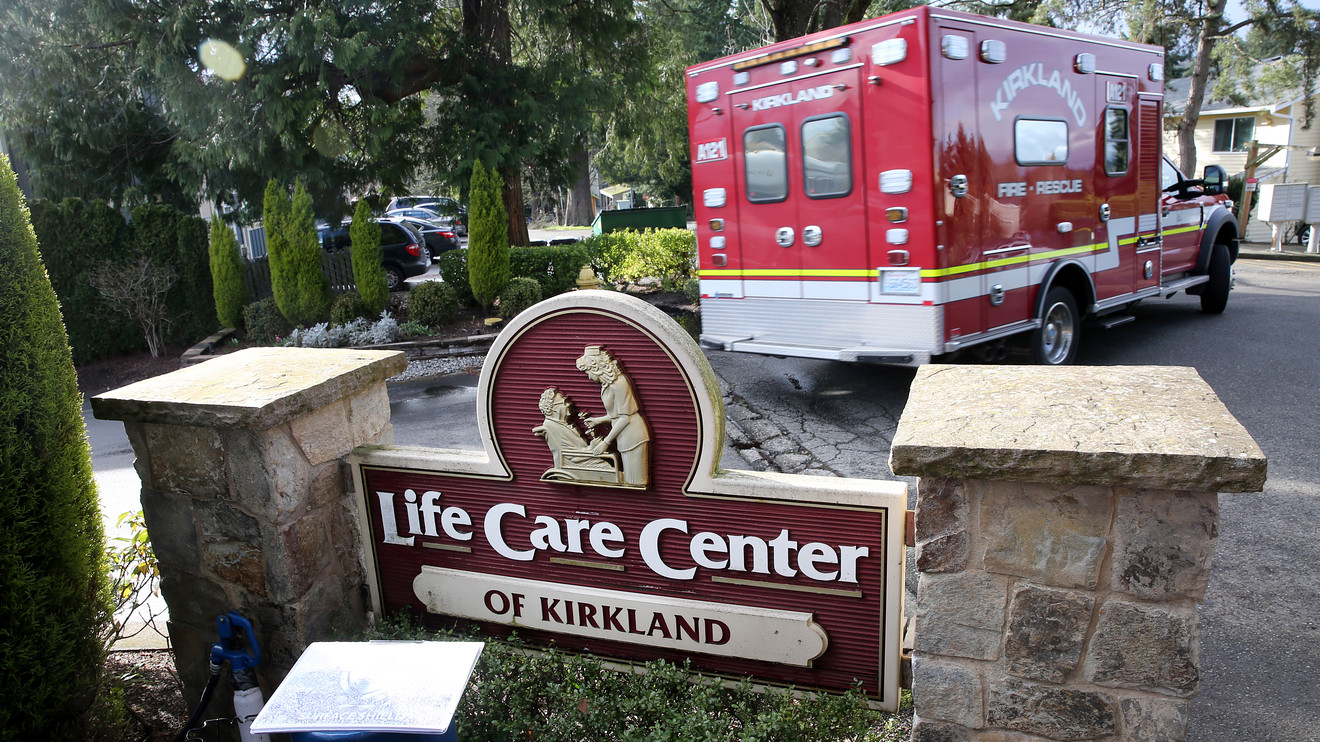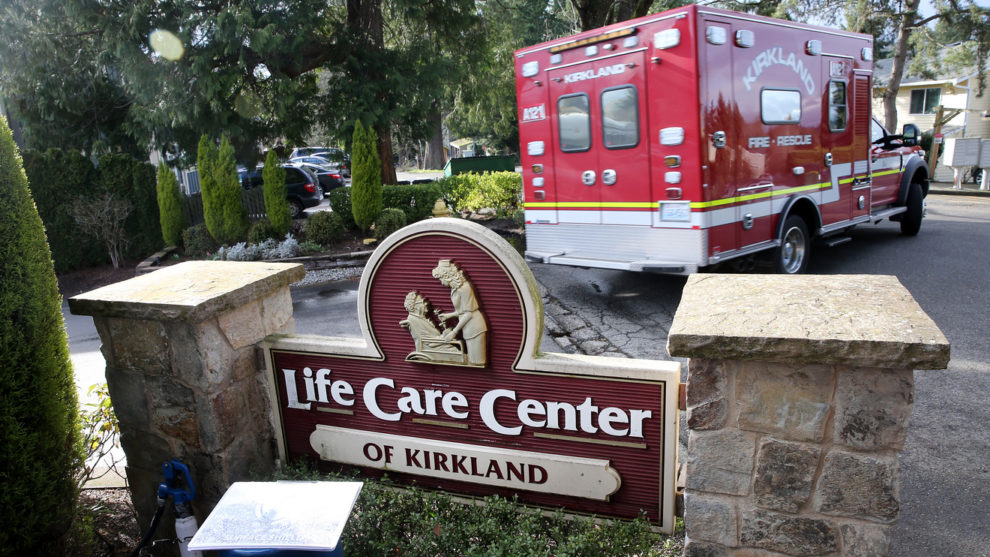
Older adults, as well as those with underlying health issues, are more likely to suffer if they contract the coronavirus, according to the CDC.
Serious complications or death from the coronavirus are especially high in nursing homes, and industry leaders are issuing guidelines to help prevent any more people from falling ill.
There is a 15% mortality rate for adults 80 years and older, according to the American Health Care Association and the National Center for Assisted Living.
A nursing home in Washington state is currently experiencing the consequences of elderly Americans coming in contact with the coronavirus. The Life Care Center of Kirkland, Wash., has had 26 deaths as of Tuesday, the center said in a press briefing.
Prior to the outbreak of the coronavirus in mid-February, there were 120 residents at the nursing home, but there are now 49 (more than 60 had been moved to hospitals). In total, there are 21 residents who tested positive for the coronavirus, 12 with negative results, another 12 pending and 4 inconclusive results. Approximately seven are showing symptoms of the coronavirus, the center said.
See: These nine companies are working on coronavirus treatments or vaccines — here’s where things
Nursing home industry leaders are suggesting facilities limit or entirely restrict visitors, as well as screen anyone before letting them enter nursing homes. The American Health Care Association and the National Center for Assisted Living created a checklist to address this screening, which would affect all employees, family members, visitors and government officials.
The checklist asks: “Has this individual washed their hands or used alcohol-based hand rub on entry?” and if they’ve traveled internationally in the last two weeks to areas where the coronavirus cases have been confirmed. The checklist also suggests asking people the purpose of their visits, and if they have experienced any respiratory symptoms, such as fever, sore throat or shortness of breath.
“This is not a complete ban on all visitors, but routine social visits are discouraged,” the agencies noted on the checklist. They are encouraging visitors to wash their hands throughout their time in the building and not touch anyone — for handshakes or hugs — either.
Concerned family members and friends should keep lines of communication open with nursing home administrators, said Amy Goyer, the family and caregiving expert at AARP. Ask them what they’re doing to mitigate the risks of a coronavirus outbreak, how they’re sanitizing the facilities and keeping residents and visiting patients safe. “This is a time when you definitely want to be monitoring the care they are getting,” she said. Families should also create a contingency plan in the event their loved one’s nursing home or assisted living center shuts down.
There are more than 121,000 cases of the coronavirus, also known as Covid-19, across the country, and more than 4,300 deaths world-wide, according to Johns Hopkins Whiting School of Engineering’s Center for Systems Science and Engineering. Almost 66,000 people have recovered. Italy issued a lockdown of the entire country on Monday, and other countries have also taken preventive actions to slow down the spreading of the disease.
California, Washington, New York, Oregon, Utah, Maryland, Kentucky, New Jersey and Florida, among others, have declared states of emergencies amid the coronavirus scare, and New York City’s Mayor Bill de Blasio said a citywide quarantine is a “possibility.”
Older people at home are also being advised to stay in as much as possible, as well as avoid unnecessary travel and stock up on medical supplies and food in the event of an outbreak in their communities. The CDC suggests people avoid “high-touch” surfaces, like elevator buttons and door handles, disinfect items in the home, including cellphones and faucets, and stay away from crowds wherever possible.
Everyone should wash their hands with soap and water for at least 20 seconds, the CDC said, and use hand sanitizer with at least 60% alcohol when soap is unavailable.
div > iframe { width: 100% !important; min-width: 300px; max-width: 800px; } ]]>











Add Comment